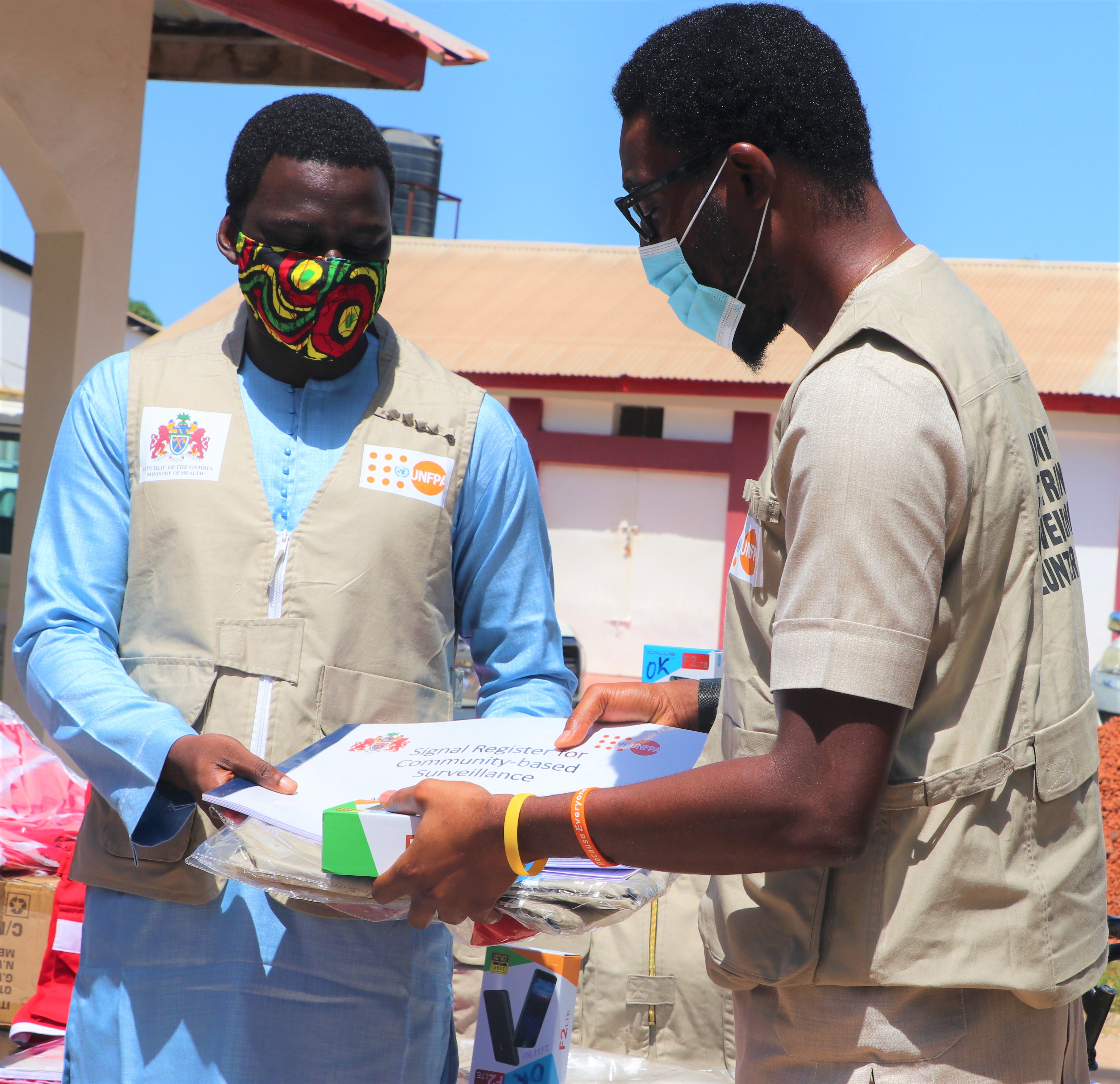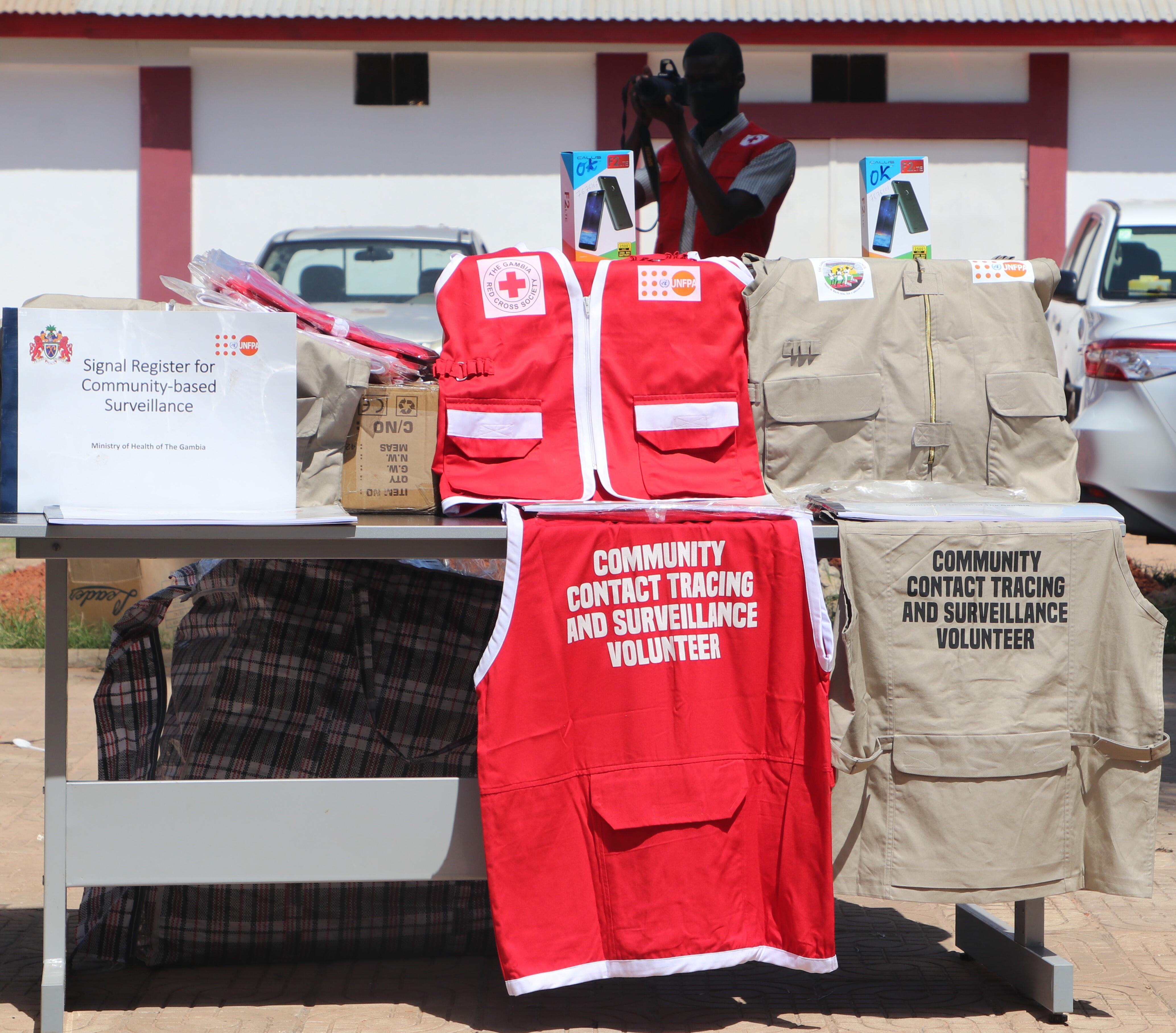Disease surveillance and contact tracing are public health strategies used to tackle the spread of contagious and deadly viruses and are key in the response to the COVID-19 pandemic. With The Gambia having recorded over 3000 positive cases of COVID-19 and witnessing a high rate of community transmission, it is vital that efforts are geared towards community-driven solutions to curb the spread of the virus. Given The Gambia’s high youthful population and evident efforts by young people to support community engagement efforts, their involvement in contact tracing and surveillance is key to curb the spread of the virus and mitigate the impact of the pandemic on communities.
Aware of the valuable contributions of young people in various response activities, UNFPA The Gambia and the Ministry of Health support The Gambia Red Cross Society and the National Youth Council, to roll-out a community contact tracing and surveillance initiative in the Central River and Upper River Regions of The Gambia. This pilot initiative to be run by nearly 100 youth volunteers in the two regions, is part of efforts to strengthen youth involvement and participation in the National COVID-19 Response and is hoped to be replicated in other regions of The Gambia after the completion of the pilot.
As the two institutions set out to commence implementation of the initiative, UNFPA The Gambia Representative, Mr. Kunle Adeniyi on 22 September 2020 presented high visibility jackets, mobile phones, signal registers and bicycles to the Secretary General of The Gambia Red Cross Society and the Acting Executive Director of the National Youth Council. The items are geared towards easing the work of the volunteers and facilitating communication between them and the Regional Health Directorates in the said regions.

Speaking at the handing-over ceremony, the UNFPA Representative highlighted that, when the country registered its first cases of COVID-19, the agency engaged in brainstorming to identify what can be done to respond to the needs of communities, what can be done to leverage the most valuable resource as a country – young people – and what can be done to keep communities safe. Given that disease surveillance is the light of every pandemic response, UNFPA consulted with the Ministry of Health and other partners to design a plan that will address all these concerns while ensuring that the quality of contact tracing and surveillance is improved upon. The Representative reiterated that this multi-faceted and multi-stakeholder approach is hoped to increase case detection and monitoring and ensure greater community involvement and ownership, thus strengthening the national surveillance system.
On his part, the Director of Health Services at the Ministry of Health Dr. Mustapha Bittaye, noted that the data this initiative will generate and the information that will be shared with communities by the volunteers, will direct the national response. He emphasised that the initiative is cross-cutting as it will not only promote contact tracing and surveillance but it will also strengthen risk communication and community engagement.
Recognising the partnership between the Gambia Red Cross Society and UNFPA, Mr. Alasan Senghore, Secretary General of the GRCS extended his institution’s appreciation for UNFPA’s support, citing the various ways in which the two institutions have worked together prior to and during the pandemic to bring people and communities together to deliver for humanity. Mr. Alhajie Jarju, Acting Executive Director of the National Youth Council also highlighted that, the beauty of this initiative lies in the fact that the volunteers who will be carrying out the contact-tracing and surveillance activities are from the communities they will be working in. This he said, will intensify youth contributions to response initiatives in various communities and at national level.
UNFPA’s support to the National COVID-19 Response is very much anchored on health system strengthening and this contact tracing and surveillance pilot, is part of the many efforts to ensure this. UNFPA is committed to continue investing in this area, in order to promote infection prevention and control, which in turn will help ensure continued delivery of essential health services including maternal health services.
Media contact:
Haddy Jonga – Programme Analyst Communication, UNFPA The Gambia jonga@unfpa.org


